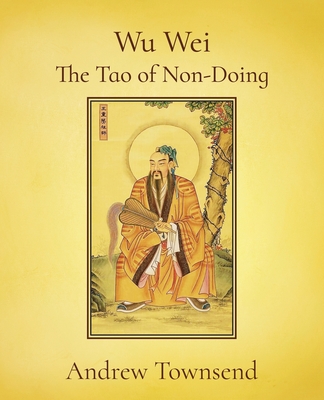Wu Wei - The Tao of Non-Doing

Wu Wei - The Tao of Non-Doing
While it would be possible to address the principle of wu wei and its applications independently of any broader philosophical platform, it is conducive to the understanding of wu wei to place this principle within the context of Taoist philosophy. For this reason, this book includes a brief introduction to Taoism in order to acquaint the reader with several of the most salient concepts and principles of Taoist philosophy, especially as these concepts and principles relate to the practices of non-doing and effortless action. Accordingly, the chapters one and two address the concepts of Taoist cosmology, Taoist metaphysics, Tai Chi theory, and Taoist psychology. Chapter three investigates the relationships between the principle of wu wei, the concept of yu wu (being and non-being), and the duality of emptiness and fullness.
The material in this book is not just theoretical, however. Chapter four explores how to integrate the non-doing of wu wei into everyday life. Chapter five presents strategies for embracing wei wu wei, or effortless action, from a practical perspective in order to incorporate effortless action into your daily life. Chapter six introduces the practice of "tranquil sitting," which is a form of meditation in which the meditator essentially does nothing, merely sitting quietly and observing the nature of the mind. Chapter seven explains how to stand still and do nothing through the practice of zhan zhuang. Chapter eight investigates how the practice of mindfulness can enhance your efforts to incorporate the principle of wu wei into your daily life. Chapter nine explores the non-doing of silence, not only during seated and standing meditation but also when engaging in activity. Chapter ten addresses the subject of abstinence, which is another form of wu wei, or non-doin
PRP: 154.61 Lei
Acesta este Prețul Recomandat de Producător. Prețul de vânzare al produsului este afișat mai jos.
139.15Lei
139.15Lei
154.61 LeiLivrare in 2-4 saptamani
Descrierea produsului
While it would be possible to address the principle of wu wei and its applications independently of any broader philosophical platform, it is conducive to the understanding of wu wei to place this principle within the context of Taoist philosophy. For this reason, this book includes a brief introduction to Taoism in order to acquaint the reader with several of the most salient concepts and principles of Taoist philosophy, especially as these concepts and principles relate to the practices of non-doing and effortless action. Accordingly, the chapters one and two address the concepts of Taoist cosmology, Taoist metaphysics, Tai Chi theory, and Taoist psychology. Chapter three investigates the relationships between the principle of wu wei, the concept of yu wu (being and non-being), and the duality of emptiness and fullness.
The material in this book is not just theoretical, however. Chapter four explores how to integrate the non-doing of wu wei into everyday life. Chapter five presents strategies for embracing wei wu wei, or effortless action, from a practical perspective in order to incorporate effortless action into your daily life. Chapter six introduces the practice of "tranquil sitting," which is a form of meditation in which the meditator essentially does nothing, merely sitting quietly and observing the nature of the mind. Chapter seven explains how to stand still and do nothing through the practice of zhan zhuang. Chapter eight investigates how the practice of mindfulness can enhance your efforts to incorporate the principle of wu wei into your daily life. Chapter nine explores the non-doing of silence, not only during seated and standing meditation but also when engaging in activity. Chapter ten addresses the subject of abstinence, which is another form of wu wei, or non-doin
Detaliile produsului










